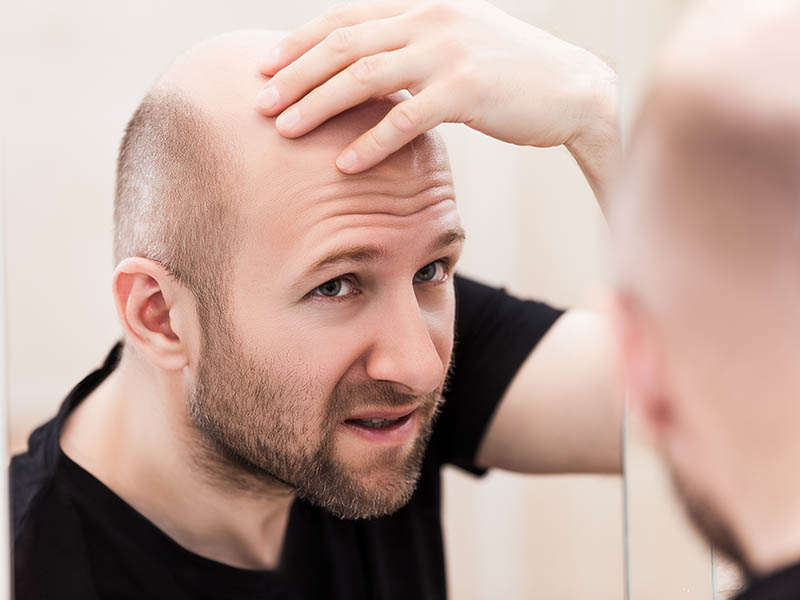
The scalp is rightly the crowning glory. Different hairstyles add or subtract a lot to our overall appearance. What we eat, how much we sleep, the amount of water and our lifestyle have a telling effect on our mane. There are many environmental, dietary and genetic factors that affect our scalps and our hair.
Book your complimentary simulation and check how SMP looks for you before it becomes permanent. Book HERE
Hair Loss
When you lose large amounts of hair, and it doesn’t grow back, it is called hair loss. All of us lose some amount of hair every day but when we lose more than what the body can regenerate it becomes a serious condition and needs to be treated medically.
Male Pattern Baldness
When men lose hair from around the temples and the hairline keeps receding, it is known as male pattern baldness. When the hair’s growth cycle weakens and the hair follicles begin to shrink. This produces thinner hair and ultimately even that tapers off. Take a medical opinion because in most cases it is harmless but could be caused by certain types of cancer, medicines and thyroid problems.
Alopecia Areata
When men suffer the loss of hair in small coin-shaped patches, it is known as Alopecia Areata. The patches occur at random places. In most cases, the person’s immune system goes against itself and begins to attack the hair follicles. Though you will not suffer total hair loss, you will still need medical attention to regrow your hair.
Top 10 Benefits of Scalp Micropigmentation
Dandruff
This is perhaps the most common scalp condition. White flakes are a result of the buildup of the dead skin from the scalp. The condition is blamed on a fungus living on the skin. Washing hair regularly with a medicated shampoo treats the problem. You can also go for the best home remedies to remove dandruff.
Psoriasis
In this scalp condition, thick, red patches develop. This is an autoimmune disease in which the buildup of cells occurs causing a scaly appearance. It is associated with other diseases like diabetes, heart issues, arthritis, and inflammatory bowel disease.
If you liked this post, please share it with your friends. Also, we invite you to follow us on Instagram and Facebook or contact us trough WhatsApp.
